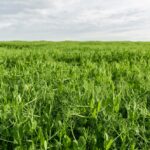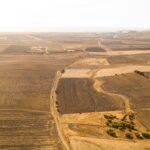Sustainable farming practices are vital for ensuring the long-term viability of agriculture in South Africa. With its diverse climates, landscapes, and agricultural systems, South Africa has the opportunity to lead the way in sustainable agriculture. By adopting and implementing sustainable farming practices, farmers can promote environmental stewardship, enhance resilience to climate change, and improve livelihoods for rural communities. Here are ten ways to utilize sustainable farming practices in South Africa:
- Diversified Cropping Systems: Planting a diverse range of crops helps improve soil health, reduce pest and disease pressure, and enhance resilience to climate variability. Farmers can implement crop rotation, intercropping, and polyculture systems to optimize resource use and minimize risks.
- Conservation Agriculture: Conservation agriculture practices, such as minimum tillage, cover cropping, and residue management, help protect soil structure, reduce erosion, and conserve moisture. By adopting conservation agriculture techniques, farmers can maintain soil health and productivity while minimizing environmental impact.
- Water Harvesting and Management: Water scarcity is a significant challenge in South Africa, making efficient water management crucial for sustainable farming. Farmers can implement water harvesting techniques, such as rainwater harvesting, and adopt irrigation practices, such as drip irrigation and furrow irrigation, to optimize water use and minimize waste.
- Agroforestry: Integrating trees and shrubs into agricultural landscapes can provide multiple benefits, including soil conservation, biodiversity conservation, and carbon sequestration. Farmers can plant trees for timber, fruit, or fodder, and implement agroforestry systems such as alley cropping and windbreaks to enhance sustainability.
- Livestock Integration: Integrating livestock into cropping systems can improve nutrient cycling, soil fertility, and farm productivity. Farmers can practice rotational grazing, silvopasture, and mixed farming systems to optimize land use and reduce environmental impact while enhancing livestock health and productivity.
- Integrated Pest Management (IPM): Integrated Pest Management is a holistic approach to pest control that emphasizes prevention, monitoring, and the use of multiple control methods. By combining cultural, biological, and chemical control measures, farmers can minimize pesticide use, preserve beneficial insects, and reduce the risk of pesticide resistance.
- Soil Conservation: Soil erosion is a significant threat to agricultural productivity in South Africa, making soil conservation a priority for sustainable farming. Farmers can implement soil conservation practices such as terracing, contour planting, and grassed waterways to prevent erosion and protect soil health.
- Organic Farming: Organic farming practices promote soil health, biodiversity, and environmental sustainability by avoiding synthetic pesticides and fertilizers. Farmers can adopt organic farming techniques such as composting, crop rotation, and biological pest control to produce healthy and nutritious food while minimizing environmental impact.
- Precision Agriculture: Precision agriculture technologies, such as GPS-guided tractors, remote sensing, and variable rate application, allow farmers to optimize inputs and maximize yields while minimizing environmental impacts. By precisely targeting inputs such as fertilizers, pesticides, and water, farmers can improve efficiency and sustainability.
- Community Engagement and Knowledge Sharing: Sustainable farming practices are most effective when supported by local communities and stakeholders. Farmers can engage with community members, extension services, and agricultural organizations to share knowledge, exchange best practices, and collectively address challenges related to sustainability.
South Africa has the potential to achieve sustainable agriculture through the adoption of innovative and holistic farming practices. By diversifying cropping systems, practicing conservation agriculture, implementing water harvesting and management techniques, integrating agroforestry and livestock, adopting integrated pest management, promoting soil conservation, embracing organic farming, utilizing precision agriculture, and fostering community engagement, farmers can build resilience, protect natural resources, and ensure a prosperous agricultural future for generations to come.
Join 'Farmers Mag' WhatsApp Channel
Get the latest Farming news and tips delivered straight to your WhatsApp
CLICK HERE TO JOIN






